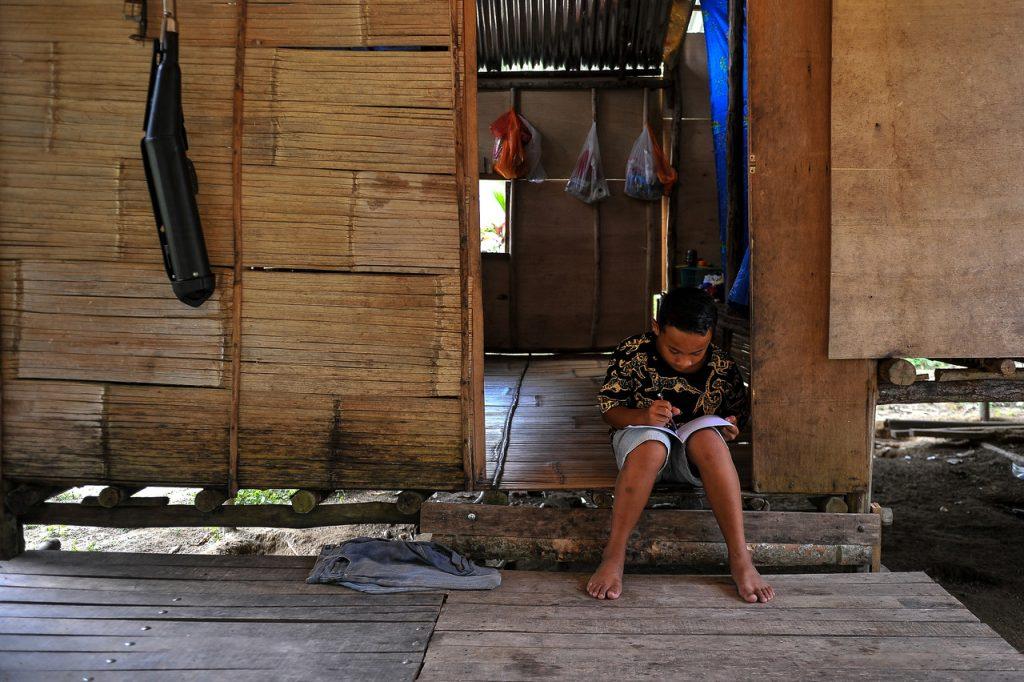Educationists warn of ‘lost generation’ as poorer students struggle online
Many from poor or rural families lack the facilities needed to properly follow home-based teaching and learning, while others may have lost the drive to continue studying.
Just In
Educationists warn of a “lost generation” of students who are left behind due a lack of resources, even as online classes and home-based learning become part of the norm under pandemic mitigation measures.
Charis Ding of Persatuan Literasi Anak Malaysia, or MYReaders, cited a study by Untuk Malaysia which said more than 1,000 students had missed out on school within just a few days in January.
Nearly 80% of them were from families in the B40 or bottom 40% group.
In 2018, meanwhile, the Programme for International Student Assessment or Pisa revealed that 46% of Malaysian students tested at age 15 could not read at the baseline proficiency level needed to effectively participate in society.
“It’s worrying to think of the large numbers of children who are losing out on education in their critical developmental years, and how this will affect their lives and impact society,” Ding said.
“Children from poor or rural communities, refugees, or children with special needs are the most affected by this learning gap.”
Schools in the country have been carrying out home-based teaching and learning since the new term began in mid-June.
The decision to keep students at home came amid a continuing spike of Covid-19 infections. Education Minister Radzi Jidin said his ministry would inform parents and students of the next step at least a week before the next school session begins.
Ding said the pandemic had exposed long-standing inequities, where students from marginalised communities lack the same level of access to education as others.
“Children from poor or rural communities, refugees, or children with special needs are the most affected by this learning gap due to disparities in educational opportunities and resources,” she told MalaysiaNow.
“With the pandemic, the same children are made more vulnerable to significant learning loss or dropping out of school due to a lack of internet connectivity or digital devices to access online learning.”
During the pandemic season, she said, there should be a stronger focus on supporting parents who are helping their children learn from home, more so as some had said that their children seemed to be losing the motivation to study.
She suggested an increase in engagement and communication between teachers and parents so that parents can stay abreast of their children’s learning levels and ways to support them in their studies.
She said this could be done by providing learning resources through accessible and low-technology platforms such as WhatsApp, SMS or phone calls.
“The role of parents is particularly crucial now to support students in catching up with learning, even after schools reopen,” she said.
“The pandemic has shown that parents must be recognised as a key factor in children’s learning and that cooperation between teachers and parents is vital in children having quality education.”
Azlin Norhaini Mansor, a senior lecturer at Universiti Kebangsaan Malaysia’s Centre Department of Education Leadership and Policy, agreed that B40 students were clearly the worst affected during the pandemic in terms of access to education.
She said their inability to attend online classes was mainly due to a lack of digital devices.
But she said there were also cases in which students were no-shows as they were no longer interested in studying.
“From my experience, there are many students who refuse to participate in classes because they have no interest,” she said, adding however that the biggest problem was “pandemic fatigue”.
Azlin suggested offering students placements at community and vocational colleges in order to encourage and cultivate their interest in studying.
“Various parties need to work together to ensure that they are given a second chance, even with a skills certificate,” she said.
Another teacher from Selangor who wished to remain anonymous said no one, whether the government, teachers, parents or students, had been prepared to face the pandemic.
“The impact will be greater among current preschoolers and primary students.”
While she praised the Digital Learning Platform or DELIMa platform introduced by the education ministry to support online learning even before the Covid-19 crisis, she said the government had failed to provide proper facilities for students from lower-income families.
In any case, she said, it was difficult to match the impact of classroom learning in an online setting, even if every student is equipped with the necessary facilities.
Given the situation, she predicted the emergence of a “lost generation” within the next five years.
“The impact will be greater among current preschoolers and primary students, as they have lost many important face-to-face learning experiences in their formative years,” she said.
As for students at the secondary and tertiary levels, she said, they too would likely suffer short-term negative impacts such as poor subject mastery and a temporary drop in grades.
“Future secondary school teachers and university lecturers will have to accommodate the needs of these who have to work harder to make up for their loss of experience,” she said.
She urged the government to step up its training for teachers, especially to develop innovative online teaching practices.
She said the training content should be simple, interactive and made available on a single platform.
“Currently, there are various good initiatives by the state education departments and district education offices, but these initiatives are disorganised and not centralised.”
And it’s not only the students who need support through this crisis.
“We also need personal mentoring and coaching for teachers who need assistance regarding the implementation of online teaching strategies,” she said.
Subscribe to our newsletter
To be updated with all the latest news and analyses daily.
